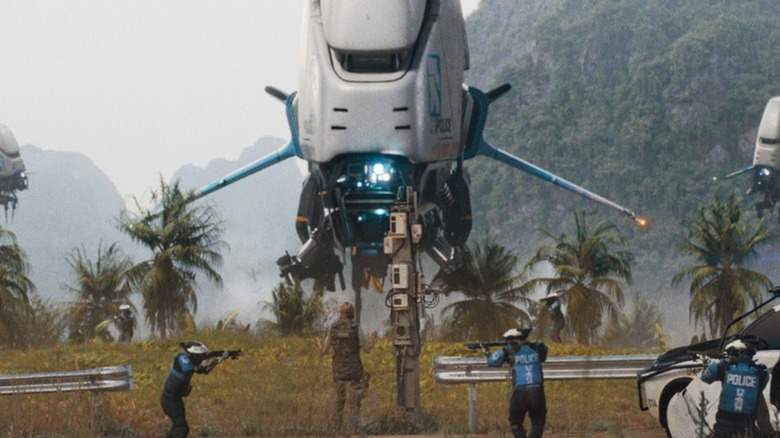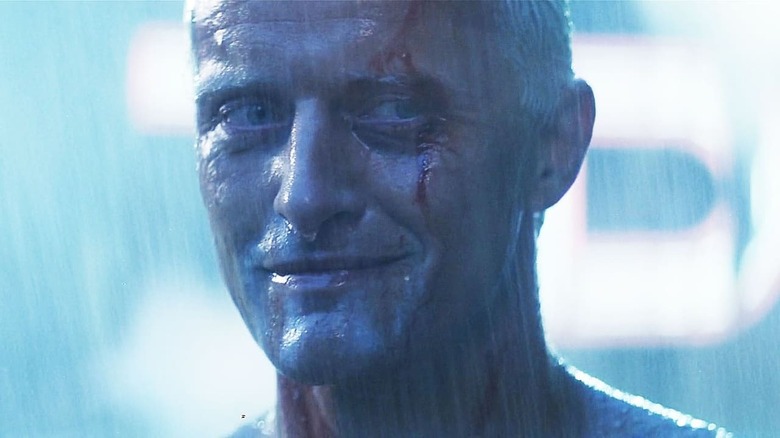The Creator's Connection To Blade Runner Explained
Contains spoilers for "The Creator"
A seemingly perpetual battle between man and machine has served as fodder for movies and books for decades now. But "The Creator" makes this premise feel fresh again with insightful themes regarding how humanity navigates artificial intelligence and responds to global threats. Even with new ideas, the movie pays tribute to what's come before, including a subtle line that science-fiction fans may recognize.
At the beginning of the film, a narrator talks about the development of AI and robotics, at one point referring to them as "More human than human." Yes, it's the title of a White Zombie song, but even from there, it's in reference to the novel "Do Androids Dream of Electric Sheep?" by Philip K. Dick, which was adapted into the seminal sci-fi classic, "Blade Runner." The phrase is used as the slogan for the Tyrell Corporation, which designs the androids that take on lives of their own.
The saying perfectly encapsulates the themes of "Blade Runner" and, by proxy, "The Creator." If a machine of sufficient intelligence is indistinguishable from humans, then shouldn't it be considered on equal footing as humanity? Writers have grappled with this question for a long time, and "The Creator" explores it in intriguing ways.
The robots in The Creator display more humanity than the humans
The idea of an android being "more human than human" is primarily exemplified in "Blade Runner" with the character of Roy Batty (Rutger Hauer). He's stronger, faster, and more intelligent than most humans, and in his famous soliloquy, he reflects on all he's done and seen during his short life. With the line of how his memories "will be lost in time, like tears in rain," the audience sees him develop empathy, an awareness of his inevitable death, and a recognition of the fleeting nature of life. He might as well be a human being at this point, and "The Creator" has several moments where the AI-driven robots are also more human than human.
When the American troops infiltrate New Asia in "The Creator," they go to a small village, looking for information regarding the whereabouts of Nirmata, the creator of the AI. No one readily gives up any details, so a soldier takes a small dog and threatens to shoot it in front of a child. If there's any way for a movie to get audiences to hate a character, it's for them to threaten a dog's life.
The robots in "The Creator" are violent, too, but it's done more in service of self-preservation. It doesn't feel like an accident that a different dog appears later in the film and drops an explosive near a group of robot law enforcement. That dog also lives, but the robots don't threaten it the same way the human soldier did. It's a way of showing how the robots with sufficient intelligence are more caring than the humans who fear them.
"The Creator" is playing in theaters now.

